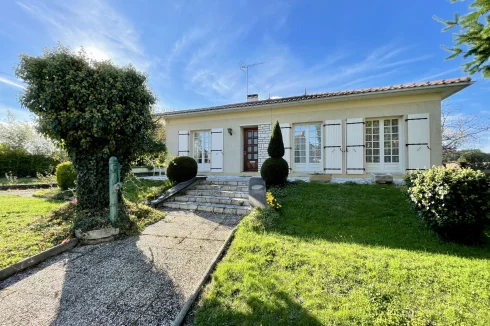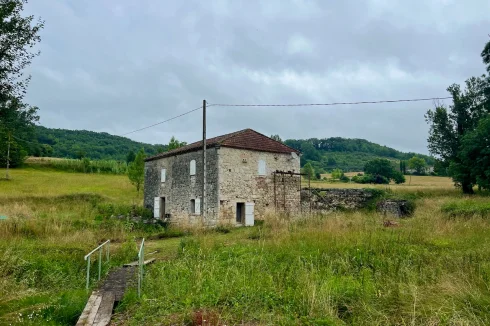Legal Protection Insurance in France
Wednesday 03 June 2020
Legal protection insurance in France is not expensive and definitely worth considering.
Such policies in France are called assurance protection juridique (frequently abbreviated to 'AJ').
The basic purpose of such policies is similar to that of closely related products available in many other countries. However, certain particularities apply in France that are important to understand.
France may not be as litigious a country as many others in Europe or North America but disputes are becoming more commonplace everywhere, and the French are no exception to this general trend.
International owners of French property are particularly vulnerable to being victims of disputes, which they are frequently unable to properly defend.
Unfortunately, all legal processes in France are expensive and even if you win you still likely to find yourself facing substantial legal and related costs.
Moreover, it is not only legal costs to consider. The courts are very reluctant to accept supporting evidence unless it has been produced or validated by official bodies or experts. Foreign language documents also need to be translated by accredited translators and that alone can be expensive.
AJ exists to cover you for all or part of those expenses, both administrative and legal, but it will not meet the cost of any court judgments issued against you.
If you need to protect yourself against damages then you need to take out a civil liability insurance, called assurance de responsabilité civile.
In addition, both standard AJ and third-party liability generally only provide insurance for the private individual or family, although it may be possible in some cases to add optional elements of business-related AJ for an additional cost.
However, if you are running a business or in a professional environment, it would be sensible to consider your AJ cover in the much broader context of your overall need for specific professional liability, indemnity
For more on insurance for professional purposes see our article Micro-Entrepreneur Business Insurance.
How AJ Works
You can call upon the insurance provider to assist you in bring a legal action, should the need arise.
The scope of general policies is generally wide but they do vary. They might range from disputes with an official government body, through consumer rights to employment conflict and labour laws. The exact scope will be set out in the policy.
The French legal system is heavily predisposed towards compromise and amicable solution, rather than confrontation in front of a tribunal with lawyers arguing the plaintiff’s and defendant’s cases.
That is partly driven by common-sense but also by the fact that the legal system is extremely sluggish and expensive to engage with.
If you ask for assistance in resolving a problem which may have legal implications, your insurance provider will normally:
- Ask you to submit all relevant facts and supporting evidence to them. They will then review the matter before consulting with the policyholder on the best approach;
- In the majority of cases, they will use the facts you have provided and your overall position statement to support an initial entirely amicable contact with the other party and/or their representatives;
- Your insurance provider and any appointed representative of the other party will normally try to reach a compromise solution to avoid taking the matter further through the courts.
It is worth noting that in most cases where AJ assistance is requested result in an amicable out-of-court solution rather than legal action.
Your insurance provider will usually take care of most of the administrative effort involved in reaching such a conclusion, as well as any related costs. That might include things such as expert surveys and testimony etc. Of course, in some circumstances, a friendly resolution is not possible and the matter may need to go to court.
If that happens, specified components of your legal and related fees will be met by your insurer.
They will propose an appropriate avocat to represent your interests, though you are not under any obligation to accept their recommendation. However, the maximum amounts they will reimburse for your own chosen lawyer’s expenses may be governed by tariffs in their policy.
In most cases, they will progress the legal action on your behalf, limiting or perhaps avoiding altogether your need to become personally involved.
Acceptance of Cases
Your insurer is under no obligation to take on your case if, in their judgement, it is ill-founded, legally incorrect or has little prospect of a successful outcome.
Should that situation arise, you can ask for the use of an independent arbiter who will review your reasoning and that of your insurance provider.
If you do so and win your case, your costs will be picked up by your insurer within the limits laid down by the policy. If you are unsuccessful in such a situation, the insurer will understandably have no obligation to meet your costs.
You can accept an arbiter recommended by the insurer or appoint one yourself, providing the person you ask to act in such a capacity is legally qualified. Their fees will usually be picked up by the insurer.
It is extremely important to note though that you should not simply initiate legal action through your own sources, then pass the matter over to your insurance provider for the first time on a “please settle the bills” basis. Insurance law may permit that but only in certain exceptional cases where a high degree of urgency was involved.
Generally speaking, your first step should always be an initial discussion in principle with your insurer. You will need them to agree that the matter is both within the scope of the policy and a valid position.
Your insurer also has the right to refuse to intervene if the case applies to what they might see as a “minor claim” in terms of materiality. Typically, that is defined as involving financial sums under €200-€400. Each policy will clarify the exact amount.
Who offers AJ?
A simple on-line search for assurance juridique will return many companies offering such policies. You are extremely unlikely to be short of choice! Some of the main providers include MACIF,GMF, Allianz and MMA.
Your bank may also offer such policies, often through a subsidiary or a partner.
If you already have household or motor insurance, it is perfectly possible that they may contain elements of AJ within them.
The principal difference between such cover and a specific AJ policy relates to the scope of the cover.
In other words, if you have AJ contained within your motor policy, it will probably only relate to circumstances arising from an automobile-related situation. House insurance policies may also offer cover, but only within a designated range of disputes.
It might also be conceptually easier to manage and ensure that you’re getting a good deal if you have a separate policy, as AJ cover and suitability can become ‘lost’ against the broader background of, say, a home insurance policy.
Once again, there is no alternative but to look closely at the wording of any existing policies which contain AJ elements within them. You should then compare them to the cover available through an independent AJ policy.
Selecting a Policy
There are very large numbers of policy options available from different providers and even within a single insurer, you are likely to see several subsets of this type of cover.
They may be described under any trade or marketing names, with one illustration being “Assistance Juridique (base)” and “Assistance Juridique Plus”.
Ultimately, there is little alternative but to look at the summary overviews of what the companies are offering and see which one appears to be closest to your own views and requirements.
There are some specific points that are worth looking for though:
- Policies will impose a maximum financial amount of cover they will provide under any circumstances. That may be for a specific case or perhaps within a specified time period. Some of these limits are very low, so you need to check the merits of having such a policy.
- The types of case and circumstances covered (or not) by the policy. In French insurance-speak, these are referred to as the applicable “domains”. For example, some may include motoring, property, land and defence of claims against you, whilst excluding things such as family disputes or situations where you are seeking compensation for defective goods etc.;
- Individuals covered. Protection for yourself, your partner and your children might be commonplace, but some grey areas might exist around parents or other close family members living with you or childcare individuals you are paying for help;
- Some, though not all, policies contain a “waiting period” (délai de carence) where they will not come into effect until some period of time after you have signed up;
- Most policies will exclude disputes and legal cases that you already knew of when you took out the policy but some might not.
Prices
Inevitably, your annual premium will depend upon things such as the breadth of cover provided by a policy and its maximum financial cover levels etc. You should expect significant variations.
However, given the potential level of cover provided, these costs are not prohibitive. For example, using the provider’s illustration mentioned above, the cost of 'AJ base' is around €50 per annum and 'AJ Plus' around €95.
Another insurer provides a basic AJ starter option for €7.50 per month, to which various additional cover modules can be added such as construction and works cover €15 pm, double cover levels and EU-wide protection for €16.25 pm.
Once again, check the scope of the cover, as the cheaper policies are unlikely to be of great benefit.
Right of Termination
Over recent years, the French insurance marketplace has become increasingly liberal. One of the symptoms is that, in many cases, it is now possible to cancel an insurance policy (résiliation) whenever you wish, thanks to the Loi Hamon.
However, AJ is an important exception to that rule. Typically, you are only allowed to terminate your annual policy if you provide at least two months’ notice in writing to the insurance provider. That must be two months before the date of automatic annual renewal. (applicable law).
Rare extenuations might only apply in cases of the death of the policyholder, a major change of occupation or change of domicile – though they must all be shown to have significantly affected the risks covered by the policy.
When you are terminating your policy, it is imperative that you do so by recorded delivery letter (suivi), which must be written in French.
You do have a right to cancel your insurance (droite de rétraction) up to 14 days after you have signed the documentation in cases where you have purchased it online or via telephone.
Thank you for showing an interest in our News section.
Our News section is no longer being published although our catalogue of articles remains in place.
If you found our News useful, please have a look at France Insider, our subscription based News service with in-depth analysis, or our authoritative Guides to France.
If you require advice and assistance with the purchase of French property and moving to France, then take a look at the France Insider Property Clinic.





